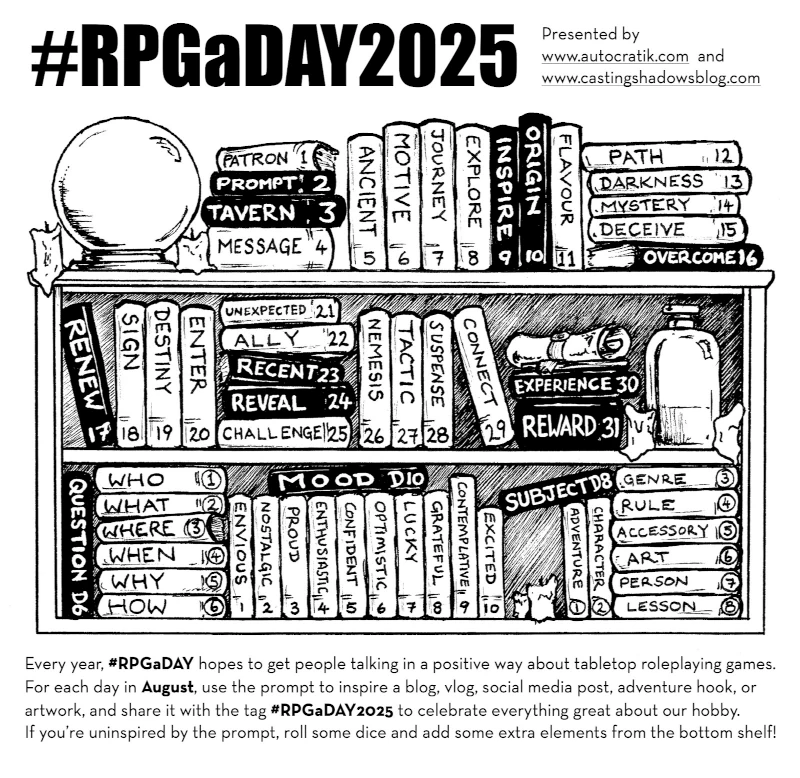RPGaDay 2025 15: Deceive
Lies and truth are interesting things in an OSR experience. I’ve been used to modern games, where there’s an “insight” skill or something similar that the players will roll to check objective reality. Outside of specific spells, such as Detect Lie or items such as a Candle of Truth, OSR games tend not to have that possibility. To me, a skill such as insight suggests a mechanical means to test objective reality with absolute certainty. Roll below the DC? You’re probably being fed lies. Roll above? You have 100% certainty of the outcome. Of course, you could roll in secret as a referee but at that point, what’s the use of the skill? The PC is left with the same amount of uncertainty as before.
The resolution is, of course, player skill not character skill—the players should be the ones drawing conclusions. I don’t remember where I read it, unfortunately, but I remember reading a piece of advice that even suggested telling the PCs outright whether something is truthful or not. Essentially, the advice was to say: “The inkeeper looks at you, and lies: ‘Oh, yes, the cave is absolutely safe, don’t worry about it’.” At first, it seemed counterintuitive to me. Wouldn’t this give them perfect knowledge of the world around them? At the same time, I see it helps build trust: what the referee says is true. The NPCs may be lying, but the referee isn’t. And, aside from that, now that they know, what will the PCs do next?
So, to accompany this thought, here’s a quick d10 table of ways to lie, to help me vary up how NPCs are deceiving the PCs:
| d10 | Type of lie |
|---|---|
| 1 | An obvious lie |
| 2 | A lie with a nugget of truth |
| 3 | A lie of omission |
| 4 | A truth with a bit of a lie |
| 5 | A misleading truth |
| 6 | An unrelated truth |
| 7 | A white lie |
| 8 | An exaggeration |
| 9 | A minimization |
| 10 | A total bluff |
Look forward to more RPGaDAY posts throughout the month!
